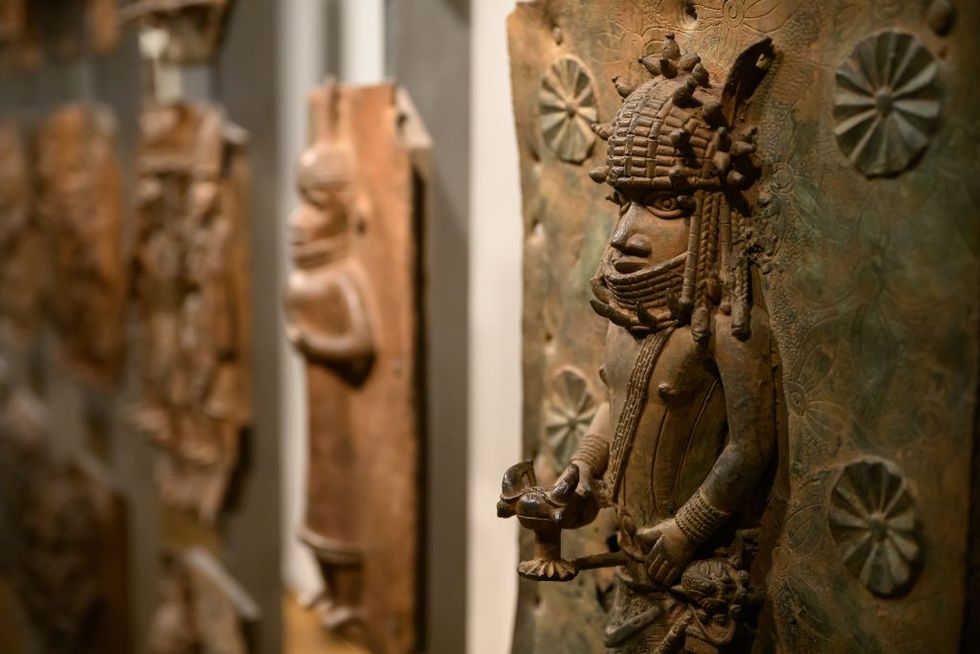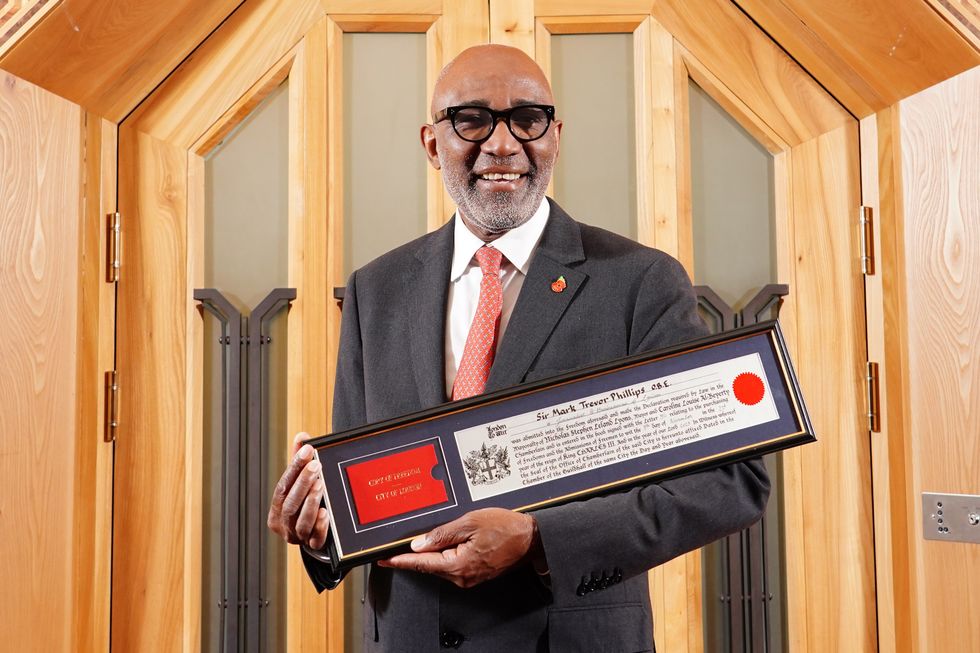‘Maybe we’ll have the islands back!’ Greece dished threat over holiday hotspot that ‘belonged to Britain’ as Elgin Marbles row rumbles on
GB News
The British Museum and other institutions are banned by law from giving away pieces of their collection
Don't Miss
Most Read
Trending on GB News
Calls to return the Benin Bronzes to Nigeria have been branded “weak” by Britain’s former anti-racism tsar.
Sir Trevor Phillips, former head of the Commission for Racial Equality, argued that the case for returning treasures looted by British forces over 125 years ago is “weak” due to their complicated historical context.
The Nigerian Government has repeatedly called for the repatriation of the artefacts, which were dispersed to museums around the world following the 1897 British raid on the ancient Kingdom of Benin, in what is now modern-day Nigeria.
The British Museum has faced growing pressure to relinquish its share of the collection, especially after several UK and European institutions - including the University of Cambridge and the University of Oxford - have taken steps to return theirs.

However, Phillips, who led the anti-racism body from 2003 until its closure in 2006, cautioned that the issue goes beyond “a simple matter of right and wrong".
He is a co-author of a report by the Policy Exchange think tank, which advises museums against hastily agreeing to restitution deals driven by moral arguments from political activists.
The report notes that returning artefacts to their countries of origin is often portrayed as a means for institutions to “right the wrongs of the past.”
However, it cautions that such claims “vary greatly in legitimacy” and are “highly disputed on historical, philosophical and political grounds”.
MORE LIKE THIS:
Phillips - a former member of the Labour Party - said: “Take the case of the Benin Bronzes, taken to Britain in the late 19th century following a punitive expedition.
“And yet, the people of Benin obtained the brass for many of these artefacts by trading with Portuguese merchants in exchange for chattel slaves.
He argued that people with a connection to the Bronzes were more likely to be able to see them in British museums, rather than in the private collection of the leader of the Edo people.
“The case for returning them is weak. Yet in other cases, such as religious artefacts still venerated by the indigenous community who created them, the case for return may be much stronger,” he added.

Currently, the British Museum and other institutions are banned by law from giving away pieces of their collection.
However, clauses in the Charities Act 2022 had the accidental effect of allowing museums to dispose of artefacts if there was a “moral obligation” to do so.
Conservative ministers did not completely close this loophole before last year’s general election, leaving the Labour Government in a position to potentially use these provisions to facilitate the return of the Elgin Marbles to Athens.







